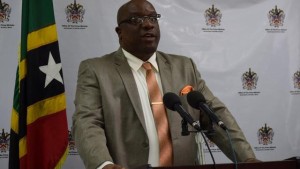 St. Kitts and Nevis Prime Minister Dr. Timothy Harris has criticized the lack of political will within the Caribbean Community (CARICOM) to push ahead with full regional integration.
St. Kitts and Nevis Prime Minister Dr. Timothy Harris has criticized the lack of political will within the Caribbean Community (CARICOM) to push ahead with full regional integration.
He said CARICOM leaders took a decision several years ago to delay fast-tracking the process because “people” were not prepared to make the argument for it.
“The case has to be made by all leaders saying the same thing and getting the people to see beyond the short term discomfort of some measures to a medium-term and long term framework,” he said during a lecture held last night at the University of the West Indies, Cave Hill Campus in Barbados.
He declared this as unfinished business within CARICOM and said the matter must be dealt with.
“How do we say that we have free mobility when if you were to go to country ‘x’ everyone knows that is the most difficult of countries, even as a graduate, to be able to find work. There is an absence of the political will and an absence of the political leadership to sell and to persuade people that this is an imperative for regional good,” the Kittitian leader argued.
Dr. Harris held up the Organization of Eastern Caribbean States (OECS) – of which his twin-island federation is part – as a model for regional integration, saying it had achieved harmonization in many different areas.
When asked about the plans by his government to join other regional states that have signed on to the Caribbean Court of Justice (CCJ) in both its appellate and original jurisdictions, he was circumspect.
The regional leader said while he believes the CCJ has excellent jurists and there is need to develop a home-grown jurisprudence that becomes an international model, the concerns of all residents must be taken on board.
“It’s not something, at this time, having regard to recent experience, that we want to rush but our minds and our hearts know that ultimately the repatriation of the justice system has to be right for Caribbean people,” he said.
“We understand, too, the real concerns of the man in the streets, even though at times the man in the street can ill afford the Privy Council. It has come to symbolize something in his head. So we have our own work to do and we think that it is not a task that the leadership of the CCJ is unable to do.”
